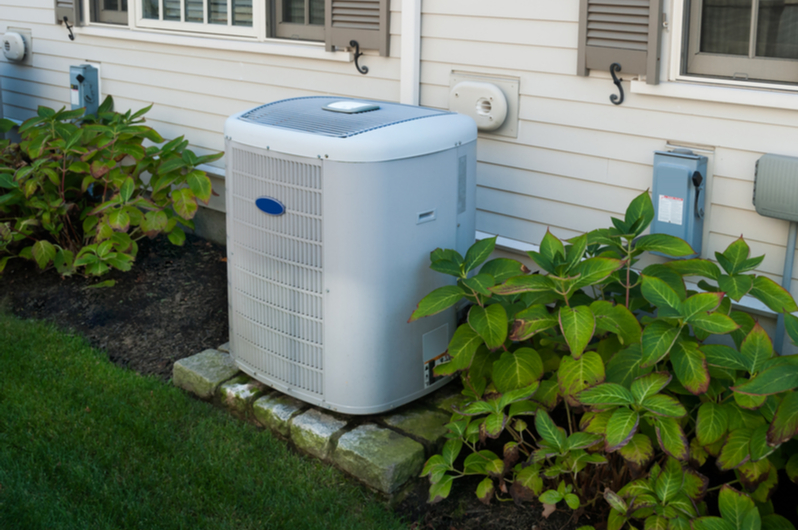Heating, ventilation, air conditioning and refrigeration (HVAC) is all overseen by HVAC technicians.
Common responsibilities of an HVAC technician include installation new system, modifying or making repairs to existing systems and performing routine maintenance on different types of indoor climate control system. When new buildings are constructed, HVAC technicians assist architects with the design process, identifying the best locations to install HVAC systems. HVAC technicians are consistently in high demand, in both residential and commercial settings.
Your salary as an HVAC technician varies based on where you work. On average, HVAC technicians make $20 to $30 an hour, typically earning $50,000 each year. Technicians who work in larger states often make more money, since these areas have more commercial properties. In these areas, technicians make closer to $75,000 a year. In addition to different salaries, the certification requirements may change based on where you work. No matter what state you work in, you must complete HVAC training and get EPA certification.
HVAC Technician Duties
HVAC technicians have many responsibilities. Most technicians specialize in one or two areas, but in smaller companies, you may be asked to perform more duties. In new buildings, HVAC technicians must test pipes and tubing joints for any leaks. They also go over electrical systems to make sure all the equipment works. When equipment breaks down, HVAC technicians are brought in to diagnose the problem and perform repairs. If the system cannot be fixed, the technician replaces it with new equipment.
Most technicians spend the majority of their time working with commercial businesses. Equipment contractors, hardware companies, plumbing and heating businesses all employ HVAC technicians. Some technicians run their own businesses or work as freelancers.
HVAC Technician Education Requirements
In order to work as an HVAC technician, you must complete a basic training program. You can complete the training program either by taking a certification course or getting an associate or bachelor’s degree in HVAC technology. No matter which option you choose, you learn all the basics to work as an HVAC technician. The classes teach system design, energy management, load calculations and air quality. You also learn how to manage ductwork and piping systems and industry safety standards, including government coding and regulations.
You can complete your HVAC training through community colleges and vocational schools. The quickest option is taking a certification course, which takes between six months to a year to finish. Earning an associate degree takes two to three years, while a bachelor’s takes four to five years. Some colleges offer expediated programs, which allow you to get your degree in two to three years instead.
Getting your degree in HVAC technology looks better on your resume and often leads to higher starting wages. You also get a more in-depth education, which is helpful if you want to specialize. If you want to work as soon as possible and develop real-world experience, it is better to get a certificate. If you want to become certified, make sure your classes are accredited by the Partnership for Air-Conditioning, Heating, Refrigeration Accreditation (PAHRA) or HVAC Excellence.
Completing an Apprenticeship
It is not a requirement, but it is common for HVAC technicians to work as apprentices. An apprenticeship is similar to an internship, but it has more benefits. As an apprentice, you are treated as a full employee. You perform the same duties as a traditional technician, but you always work alongside your mentor. Working as an apprentice is a good way to develop practical experience and network with HVAC companies. Apprentices commonly get a job through the company their mentor works for. You must work as an apprentice for 2,000 hours and take 144 hours of technical education to complete your apprenticeship. This process typically takes between three to five years. In some states, you can complete an apprenticeship instead of taking the basic HVAC training.
Becoming a Certified HVAC Technician
When you complete your training, you must take a certification exam before working as an HVAC technician. There are multiple certification available. Which certification you need depends on your state requirements, but at a minimum, you must complete the EPA certification. Some colleges include the EPA certification as part of the HVAC technology degree.
HVAC certification is divided into four possible categories. These are Types 1-3 and universal certification. Each certification test is 25 multiple choice questions. You have 30 minutes to complete the exam. Type 1 certification is for small appliances, such as air conditioners and vending machines. Type 2 is high pressure appliances, while Type 3 is low pressure appliances.
-
Institute for Business and Technology
IBT is a prestigious school for HVAC technicians. The courses focus more on maintaining and repairing commercial units. Extra classes are available, which focus on electrical theory, soldering and plumbing. The HVAC program also includes a unit on taking the EPA certification exam. The college is a popular choice because it is located in California, which is a high demand area for technicians.
-
Grand Rapids Community College
Grand Rapids has both degree courses and a certificate program. The degree program is more involved than other colleges, including lessons on blueprint reading and design. Grand Rapids allows you to earn credits through the certification course, which you can later apply to a degree program. Both degree and certificate programs allow students to get practical experience by working in an HVAC lab.
-
Georgia Piedmont Technical College
GPTC is one of the largest HVAC schools. The school runs separate programs for commercial and residential work. Both paths have a degree and certificate program. The school places a greater emphasis on air conditioning repair and maintenance.